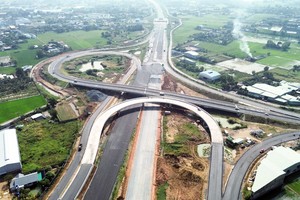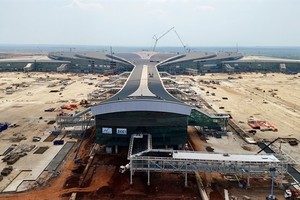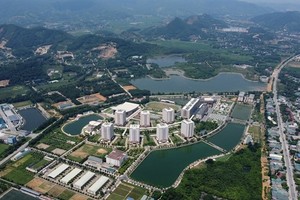The consumer price index (CPI) jumped 2.21 per cent this month but this rise was still lower than those seen in previous months.
A General Statistics Office (GSO) report released yesterday said the CPI increase was down on the 2.9 per cent rise of February and the 3.32 per cent increase experienced in April but was still high.

The surge in the CPI in April was the highest month-on-month increase since 1991, and even exceeded the April 2008 figure of 2.2 per cent, which came in the midst of the global economic crisis.
The CPI in May notched up a year-on-year increase of 19.78 per cent.
Nguyen Duc Thang, head of GSO's Price Department, said the May CPI had increased because of surges in the fuel price of 40 per cent in February and March, a 15-per-cent jump in the electricity price in March and a 13-per cent leap in wages in May.
Almost all of the 11 commodities groups used to calculate the CPI were up this month. Only post and telecommunications recorded a fall, with the index slipping 1.68 per cent.
The catering services and house and building materials group witnessed the highest price rises with 3.01 per cent and 3.1 per cent, respectively. Transport, meanwhile, was up 2.67 per cent.
In May, the gold price clocked up a month-on-month increase of 1.43 per cent, a dramatic rise of 40.04 per cent year-on-year.
Meanwhile, the US dollar price slid 0.08 per cent against last month's figure but was up 10.16 per cent compared with the same period last year.
Experts said the CPI would continue to increase but its growth would slow as macroeconomic policies kicked in, and the economy saw strong supply in the industrial and agricultural sectors and lower prices for essential goods.
Therefore, the Price Management Department expected the CPI in June to see only a slight increase of 0.7–0.8 per cent.
In June, complications brought about by weather and diseases as well as a shortage of power would lead to increasing pressure to raise prices on the domestic market, said the experts.
The price of goods would continue to rise because more goods were being subjected to the market rules on price regulations.
Inflation skyrocketed 12.07 per cent in the first five months of this year, already surpassing this year's official target of 7 per cent.
























